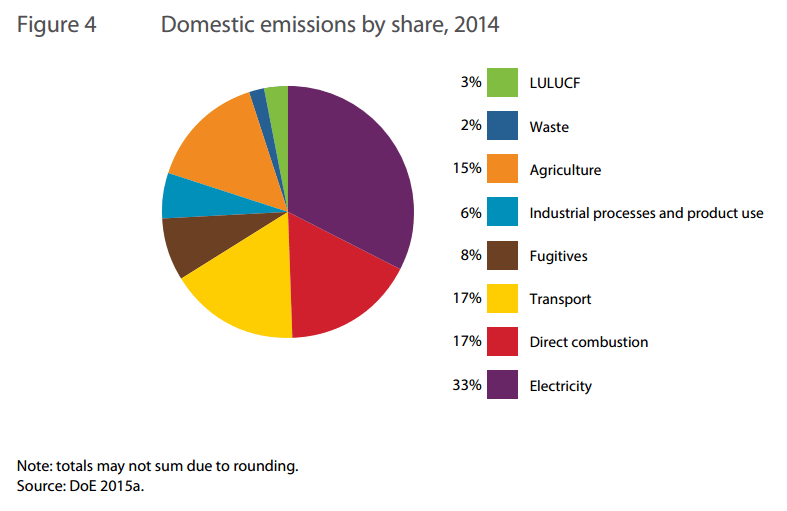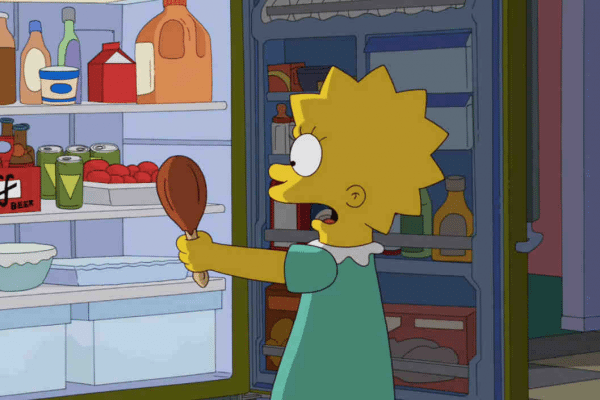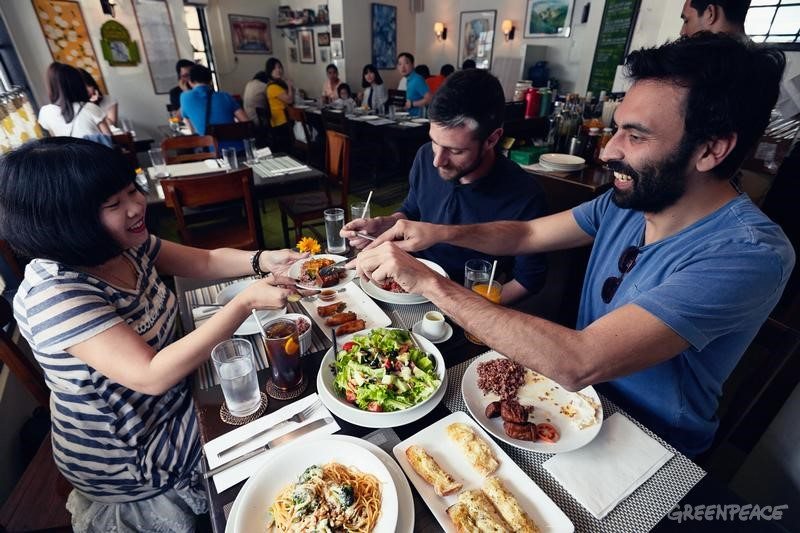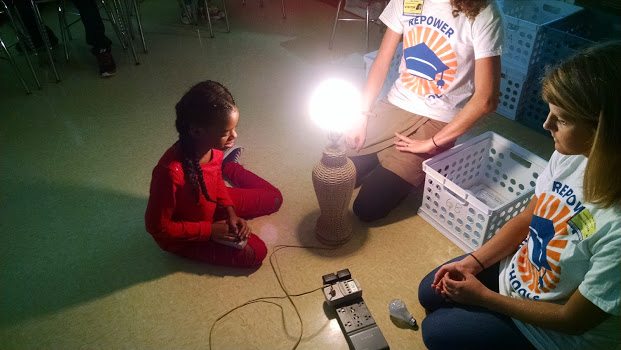Happy World Vegetarian Day! Cutting back on red meat and dairy can be one of the biggest steps to reduce your carbon footprint. While we’re campaigning for renewable energy and a transition from fossil fuels, we’re also looking at other ways we can protect ourselves and the environment.
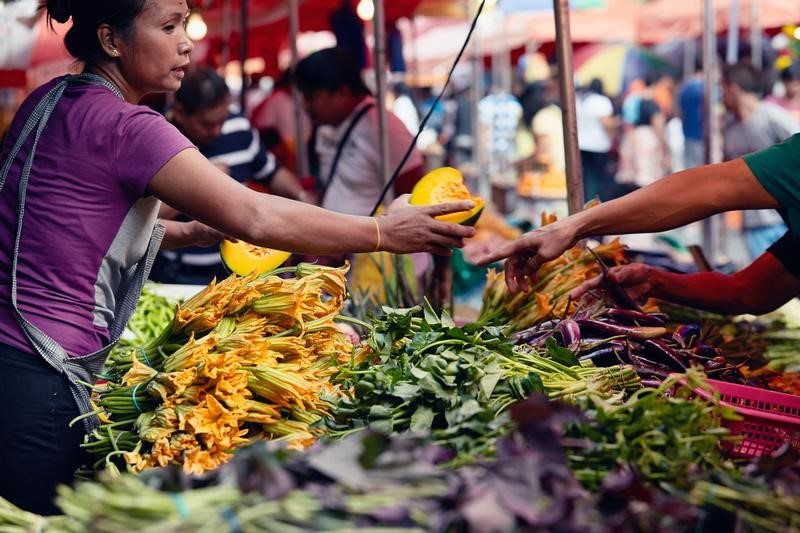
Happy World Vegetarian Day! Cutting back on red meat and dairy can be one of the biggest steps to reduce your carbon footprint. While we’re campaigning for renewable energy and a transition from fossil fuels, we’re also looking at other ways we can protect ourselves and the environment.
So why start a low-carbon diet, and where do you begin making changes? Check out these great tips for cutting back on meat.
I’ve been an activist for two years and a vegetarian for six. During this time, I’ve cited animal welfare, my feelings towards factory farming, and ‘because someone dared me to’ as reasons for my meat-free diet. Now, my main motivation for vegetarianism comes from environmental concerns: I’ve recognised it’s an easy way to reduce my carbon emissions.
Just like a fossil fuel transport system, the meat industry is impacting the environment. And when we eat red meat every day – one of the most resource-intensive foods in modern Western diets – it impacts heavily on our water use and carbon footprints.
According to the Australian government, due to emission of greenhouse gases like methane, carbon dioxide and nitrous oxide, agriculture accounts for 15% of national emissions.
It’s pretty scary stuff. Image via GrubStreet
According to the US Dietary Guidelines Advisory Committee’s scientific report:
“Consistent evidence indicates that, in general, a dietary pattern that is higher in plant-based foods, such as vegetables, fruits, whole grains, legumes, nuts, and seeds, and lower in animal-based foods is more health promoting and is associated with lesser environmental impact (GHG emissions and energy, land, and water use) than is the current average U.S. diet.”
In Australia, there are many factors that contribute to the carbon emissions caused by our food consumption – production, packaging, transport, and cooking methods – which means there are also lots of ways to cut back. But for those who are thinking of reducing their red meat intake or giving up meat altogether, here are four helpful tips I’ve gathered to help with adjusting to a meatless life.
1. The rules of your diet are up to you
Your diet is a very personal part of your life. In Australia, many of us are lucky enough to have autonomy over what we eat, which means we can control what we put in our mouths.
You don’t need to follow the rules and trends of other herbivores – just the advice of your doctor (and maybe your mum). Some vegetarians choose to eat sustainably caught seafood, and some vegans eat eggs from their own chickens. Others – called ‘freegans’ – eat meat and dairy that would otherwise be thrown out to avoid food waste. As long as you’re safe, healthy, and making the decisions you want for yourself and the world – you’re all good.
2. It’s okay to start slow
If dropping meat from your diet right now sounds daunting, you can try phasing it out over time. Initiatives like Meatless Mondays where people stop eating meat one day of the week are a great place to start (not to mention you’ll be alongside people like Sir Paul McCartney and Chris Martin). You could also make an effort to choose the vegetarian option when eating out, or start by cutting the most resource-intensive meats like beef from your diet.
If you’re anything like me, it’s making the decision to commit to a new diet that is difficult – after that it’s easy! But if you slip up or forget, be kind to yourself and keep at it.
3. Talk to your friends and loved ones
Sometimes our diets affect the people we live with or see a lot. If you’re sharing food preparation duties with someone, make sure you talk to them about your decision and make an effort to work out a plan. Maybe some nights you’ll cook separately, or you’ll make dishes with the meat on the side – or they might even make a change with you!
If you’re visiting friends or family for a meal, let them know about your new diet. You might want to bring a vegetarian dish or two to share, or offer to come early to help cook and prepare. Your diet doesn’t have to stop you from enjoying your life.
4. The Internet is your best friend
From nutritional information, to vegetarian recipes, to helping you find the perfect ingredient substitutes – the internet has everything a vegetarian needs.
Here are some handy online tools and resources:
- Taste.com.au – Vegetarian recipes
- Better Health Victoria – Vegetarian and Vegan eating
- Australian Healthy Food – Vegetarian
- Huffington Post – Vegetarian Cooking Hacks Every Herbivore Should Know
- Buzzfeed – 17 Cooking Hacks Every Vegan Should Know
What if I can’t cut back on meat right now?
If you can’t stop eating meat, but still want to bite away at your food footprint, there’s still lots you can do. You might choose to buy local or organic produce, stop eating processed or packaged foods, or grow your own fruit and vegetables at home. There are even ways to make changes to the ways you consume meat and dairy to reduce your carbon food footprint – like choosing from more ecological farming methods – for example, buying grass-fed rather than grain-fed beef.
What is ecological farming?
Ecological farming ensures healthy farming and healthy food for today and tomorrow by protecting the soil, water and climate, and promoting biodiversity.
Livestock reared ecologically integrates farm animals as essential elements in the agriculture system; they help optimise the use and recycling of nutrients and, in many regions, provide a necessary farm workforce. Such methods rely on grasslands, pasture and residues for feed, minimising use of arable land and competition with land used for direct human food production, and protecting natural ecosystems within a globally equitable food system.

